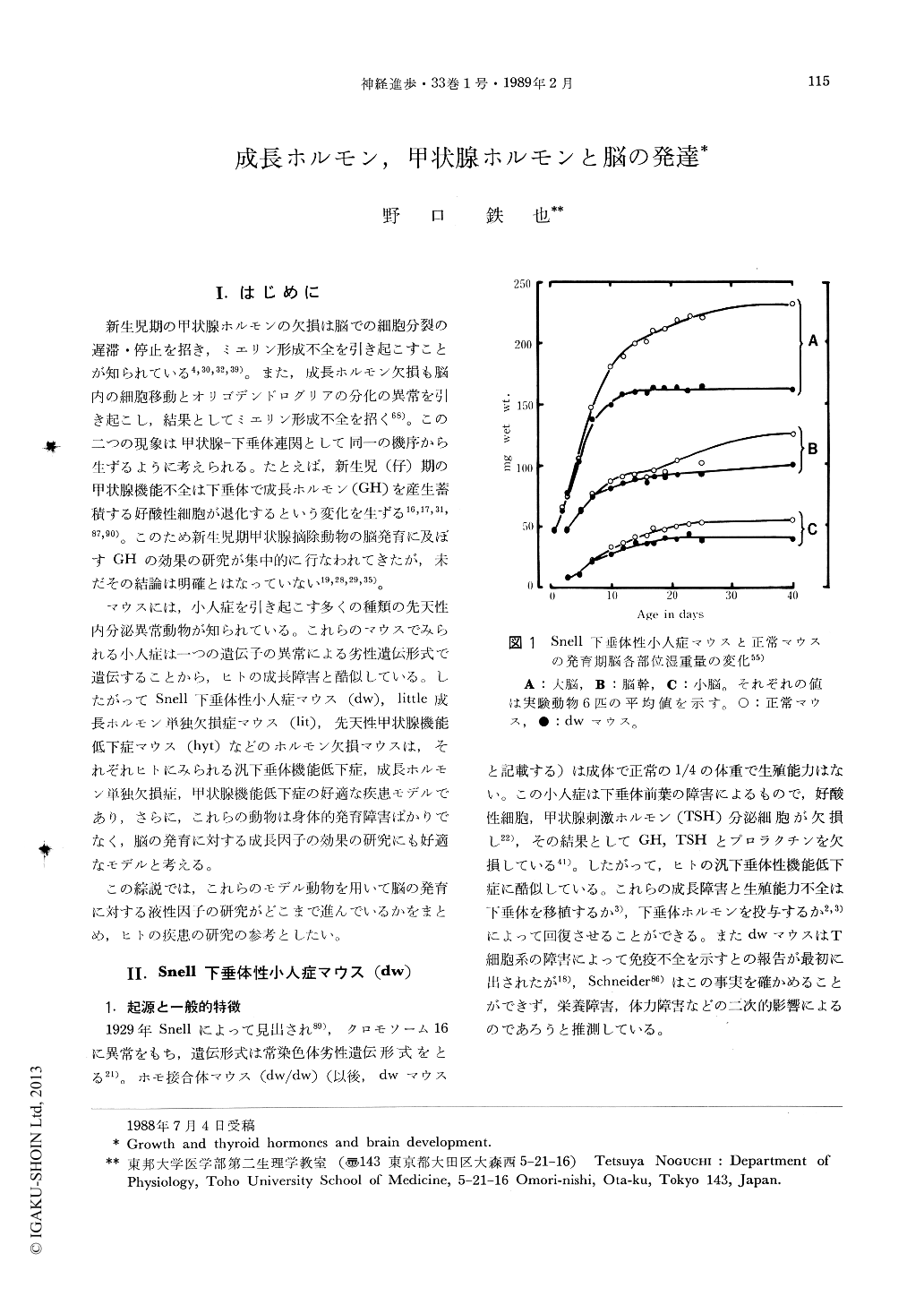Japanese
English
- 有料閲覧
- Abstract 文献概要
- 1ページ目 Look Inside
I.はじめに
新生児期の甲状腺ホルモンの欠損は脳での細胞分裂の遅滞・停止を招き,ミエリン形成不全を引き起こすことが知られている4,30,32,39)。また,成長ホルモン欠損も脳内の細胞移動とオリゴデンドログリアの分化の異常を引き起こし,結果としてミエリン形成不全を招く68)。この二つの現象は甲状腺—下垂体連関として同一の機序から生ずるように考えられる。たとえば,新生児(仔)期の甲状腺機能不全は下垂体で成長ホルモン(GH)を産生蓄積する好酸性細胞が退化するという変化を生ずる16,17,31,87,90)。このため新生児期甲状腺摘除動物の脳発育に及ぼすGHの効果の研究が集中的に行なわれてきたが,未だその結論は明確とはなっていない19,28,29,35)。
マウスには,小人症を引き起こす多くの種類の先天性内分泌異常動物が知られている。これらのマウスでみられる小人症は一つの遺伝子の異常による劣性遺伝形式で遺伝することから,ヒトの成長障害と酷似している。したがってSnell下垂体性小人症マウス(dw),little成長ホルモン単独欠損症マウス(lit),先天性甲状腺機能低下症マウス(hyt)などのホルモン欠損マウスは,それぞれヒトにみられる汎下垂体機能低下症,成長ホルモン単独欠損症,甲状腺機能低下症の好適な疾患モデルであり,さらに,これらの動物は身体的発育障害ばかりでなく,脳の発育に対する成長因子の効果の研究にも好適なモデルと考える。
A lack of thyroid hormone (T4) during early postnatal life produces a delay or arrest of cell proliferation, migration, and differentiation in the brain, and reduced myelination. Likewise, growth hormone (GH) deficiency also impairs cell migration and oligodendroglial differentiation, which subsequent failure of myelination. Both of the above findings appear to act via a similar mechanism, a thyroid-pituitary linkage. Neonatal thyroid dysfunction produces a striking alteration of the pituitary gland, characterized mainly by degradation of eosinophilic cells, which appear to synthesize or store GH. For this reason, the effect of GH on brain growth in neonatally thyroidectomized animals has been intensively studied, but the results are still controversial and inconclusive.

Copyright © 1989, Igaku-Shoin Ltd. All rights reserved.


